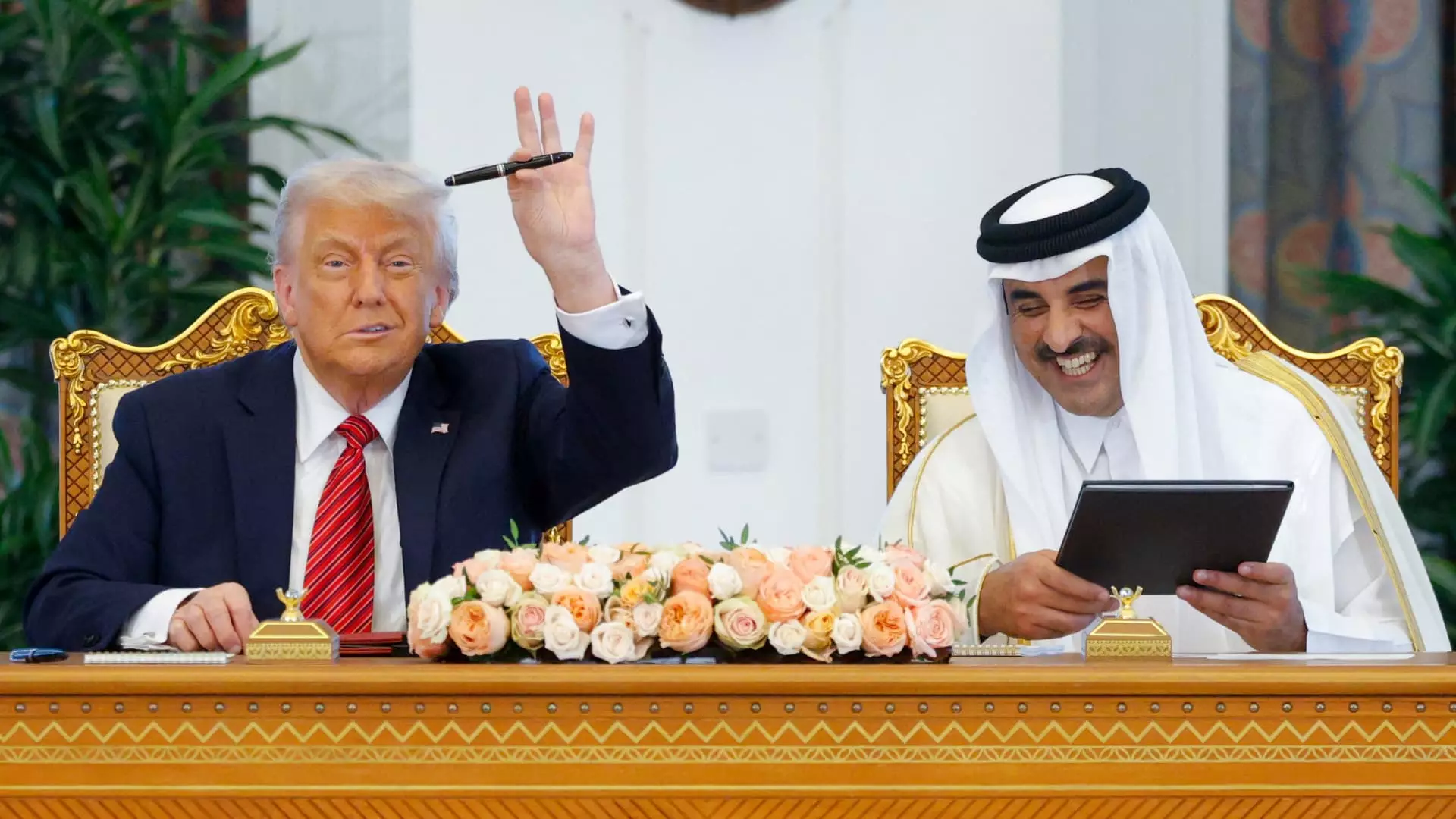When Qatar’s prime minister, Sheikh Mohammed bin Abdulrahman al-Thani, stepped forward to address the mounting accusations surrounding the proposed $400 million Boeing 747 gift to U.S. President Donald Trump, his defense felt less like a reassurance and more like a reluctant admission of the complexities hidden beneath their transactional relationship. The prime minister framed the jet as a mere “exchange” between allies, insisting that the long-standing diplomatic ties between Qatar and the United States are robust and institutional. Yet, the gravity of the situation amplifies doubts rather than quelling them. In an era where ethical conduct is paramount, the line between diplomatic generosity and outright influence-peddling becomes increasingly blurred.
Al-Thani’s insistence on the legality and transparency of the deal does little to alleviate concerns that this overture might not be so benign. He positions it as a customary transaction in defense cooperation, but can we naively dismiss the timing and context? Trump’s recent trip to the Middle East, which saw him engage with key regional players, leads many to wonder if this lavish gift might be seen as Qatar’s desperate attempt to secure favorable U.S. policy outcomes, especially amid the geopolitical turmoil of the region. The implication, whether intended or not, is a dangerous precedent that raises questions about the integrity of foreign relationships under President Trump’s administration.
To Gift or Not to Gift: The Ethics of Diplomatic Relations
The heart of the matter lies in a phrase that echoes through the halls of the U.S. Congress: the Foreign Emoluments Clause. This clause exists as a safeguard against potential corruption, indicating an inherent mistrust of how foreign influences might attempt to mold American policy through lavish gifts. As Rep. Jamie Raskin pointedly remarked, it is Congress’s duty to prevent the presidency from devolving into what resembles a “get-rich-quick scheme.”
The involvement of opposing politicians enhances the urgency of the conversation. Their calls to scrutinize the transaction resonate with citizens wary of the ethical erosion they perceive in national politics. Senator Chris Murphy’s statement that “this is the definition of corruption” is strikingly profound. It captures the pervasive sentiment that political decorum is at risk as power players like Trump engage in transactions that appear to blur the lines between personal benefit and public service.
Whether or not Qatar’s gift is simply an act of goodwill or a strategic maneuver to gain leverage is an unsettling question. This uncomfortable ambiguity calls out not only the motives of Qatar but also the ethical fiber of Trump’s administration—an administration frequently criticized for potential conflicts of interest and an apparent disregard for longstanding ethical norms.
The Political Theatre of Distrust in the Age of Trump
In analyzing this situation, it becomes increasingly apparent that it serves as yet another episode in the ongoing political theatre that defines the Trump presidency. The reactions from Democratic leaders encapsulate an existential dread regarding an escalation of corrupt practices, as the administration demonstrates an unsettling willingness to entertain notions that could compromise national integrity. The fact that a foreign state would feel empowered to offer such an extravagant gift raises existential questions about sovereignty and the potential subservience of the United States to foreign interests.
Even if Qatar asserts that its motives are purely benevolent, we cannot ignore the implications of such actions amid national scrutiny. The optics of a foreign nation gifting an aircraft—historically reserved for the American head of state—signals a troubling trend where diplomatic niceties may evolve into bargaining chips.
Furthermore, Trump’s social media remarks regarding utilizing the gifted jet as a temporary Air Force One replacement, before potentially diverting it to a presidential library foundation, underscores a lack of gravitas that one would expect from the leader of the free world. Instead of dignifying the presidency, it seems to trivialize it, reducing significant international relationships to a spectacle of self-serving gestures.
In a landscape hungry for integrity, the “gift” from Qatar throws a stark spotlight on the dire need for heightened scrutiny and the establishment of norms that safeguard against the chipping away of ethical standards. As discussions in Congress gain momentum, they invite a critical examination of how foreign relations should be conducted—how they can honor tradition while resisting the corruptive allure of wealth. Our nation, embedded in its foundational laws, must navigate these murky waters with vigilance, lest we slip into an age characterized by transactional foreign relations that sacrifice moral standing on the global stage.


Leave a Reply